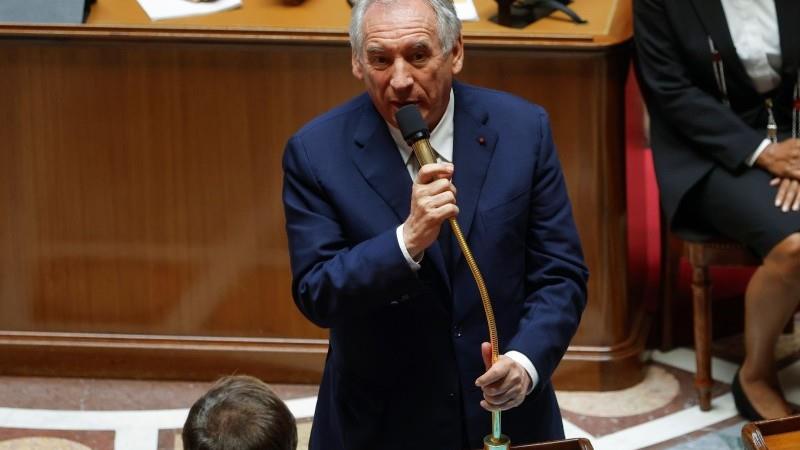French Government Falls, Fiscal Uncertainty Deepens
As expected, French Prime Minister François Bayrou lost the confidence of Parliament on Monday, triggering his resignation. A total of 364 MPs voted against the government, with only 194 in favour, suggesting that members of the centrist alliance, which holds 210 seats, broke ranks. The internal divisions within the conservative party 'Les Républicains' continue to undermine any attempt at forming a stable central bloc.
What happens next?Emmanuel Macron has indicated that he has 'taken note' of the fall of François Bayrou's government. Macron will receive Bayrou on Tuesday to accept the government's resignation and has announced that he will 'appoint a new prime minister in the coming days'. At this stage, President Macron is ruling out the option of dissolution and is looking for a new prime minister who will be able to break the budget deadlock.
Some centrist MPs have floated the idea of appointing a 'negotiator' to forge a political agreement before naming a new prime minister. As is the case in other countries such as Belgium, the idea would be to reach agreement on the 'what' before the 'who'. If this option were pursued, it would mean that forming a government and therefore voting on a budget would take a long time. But, with nationwide protests planned for 10 and 18 September, Macron risks becoming the sole target of public anger in the absence of a functioning government.
In our view, dissolution of parliament is not the most likely scenario in the coming days; the president will first try to find a prime minister who can survive a vote of no confidence. Macron's resignation is even less likely.
Public finances will remain the problemThe government's collapse stems from the controversial 2026 budget plan. Bayrou proposed €44 billion in savings, but Monday's vote shows that consensus is out of reach regardless of who leads the next government.
According to a new Finance Ministry report, public spending would rise by €51.1 billion next year without corrective measures, pushing the deficit to 6.1% of GDP, far above the 4.6% indicated in the plan submitted to the European authorities. Above all, the problem will only worsen in the coming years. Without a change in policy, debt is expected to rise from 113% of GDP in 2024 to 125.3% of GDP in 2029.
France's fiscal problem is primarily due to its ageing population. Social protection and healthcare expenditure accounted for 32.3% of GDP in 2023, compared with an average of 27.2% in the eurozone, and this expenditure will only increase naturally as the population ages. In addition, France's potential GDP growth remains very low, at around 1.2%, which is not enough to finance the rising cost of social protection. The problem is all the more acute when GDP growth falls below potential, as is the case this year, with growth expected to average 0.6%.
In a context where taxation is already high, the equation is complicated and will continue to cause political instability, not only this year, but also in the years to come.
Uncertainty has an economic costThe announcement of the confidence vote on 25 August has already increased uncertainty. While post-25 August sentiment data is not yet available, a drop in business and consumer confidence is likely. Investment, hiring, and consumption decisions may be postponed, slowing economic momentum. Rising market rates are weighing on financing costs and may slow down certain sectors, particularly real estate and construction. In this turbulent environment, economic activity is likely to stagnate in the fourth quarter of this year.
Rates impactWhilst the negative outcome from the confidence vote was expected, it does highlight the uncertain path towards France's fiscal consolidation. The most probable way forward is the appointment of a new prime minister, but preparing a budget that will pass parliament seems difficult. The spending cuts will likely have to be watered down for broader political support.
French government bond (OAT) yields are unlikely to tighten from here, whilst the upside potential is still significant. The 10Y OAT-Bund spread is still some 10bp tighter than the peak last November when Barnier's government fell. Compared to then we now have the possibility of new parliamentary elections, which only complicates the puzzle further and keeps uncertainty high.
Spillovers to the broader eurozone market are limited so far, but a prolonged escalation could see lower swap rates. Whilst the hurdle for pricing in more European Central Bank easing is high, for longer rates we do see risk sentiment as a potential bullish factor. The combination of worsening US economic data and headlines from France may limit the upside potential for 10Y swap rates for now. Having said that, as long as Macron is president, likely until the 2027 elections, we don't expect a blow-out of OAT spreads and a broader shock to risk sentiment.

Legal Disclaimer:
MENAFN provides the
information “as is” without warranty of any kind. We do not accept
any responsibility or liability for the accuracy, content, images,
videos, licenses, completeness, legality, or reliability of the information
contained in this article. If you have any complaints or copyright
issues related to this article, kindly contact the provider above.
Most popular stories
Market Research

- United States Lubricants Market Growth Opportunities & Share Dynamics 20252033
- Daytrading Publishes New Study On The Dangers Of AI Tools Used By Traders
- Newcastle United Announce Multi-Year Partnership With Bydfi
- Ecosync & Carboncore Launch Full Stages Refi Infrastructure Linking Carbon Credits With Web3
- Utila Triples Valuation In Six Months As Stablecoin Infrastructure Demand Triggers $22M Extension Round
- From Zero To Crypto Hero In 25 Minutes: Changelly Introduces A Free Gamified Crash Course


















Comments
No comment